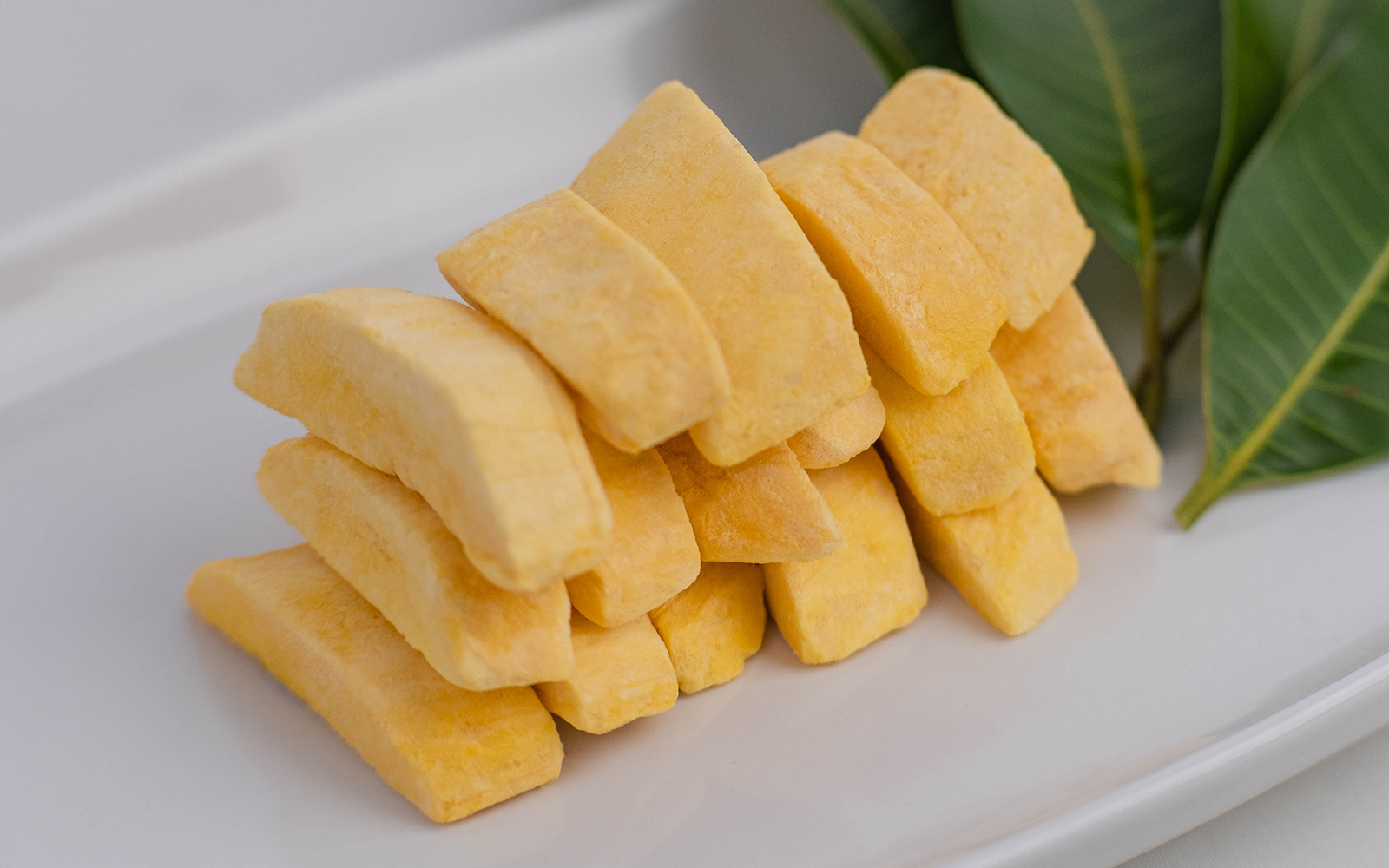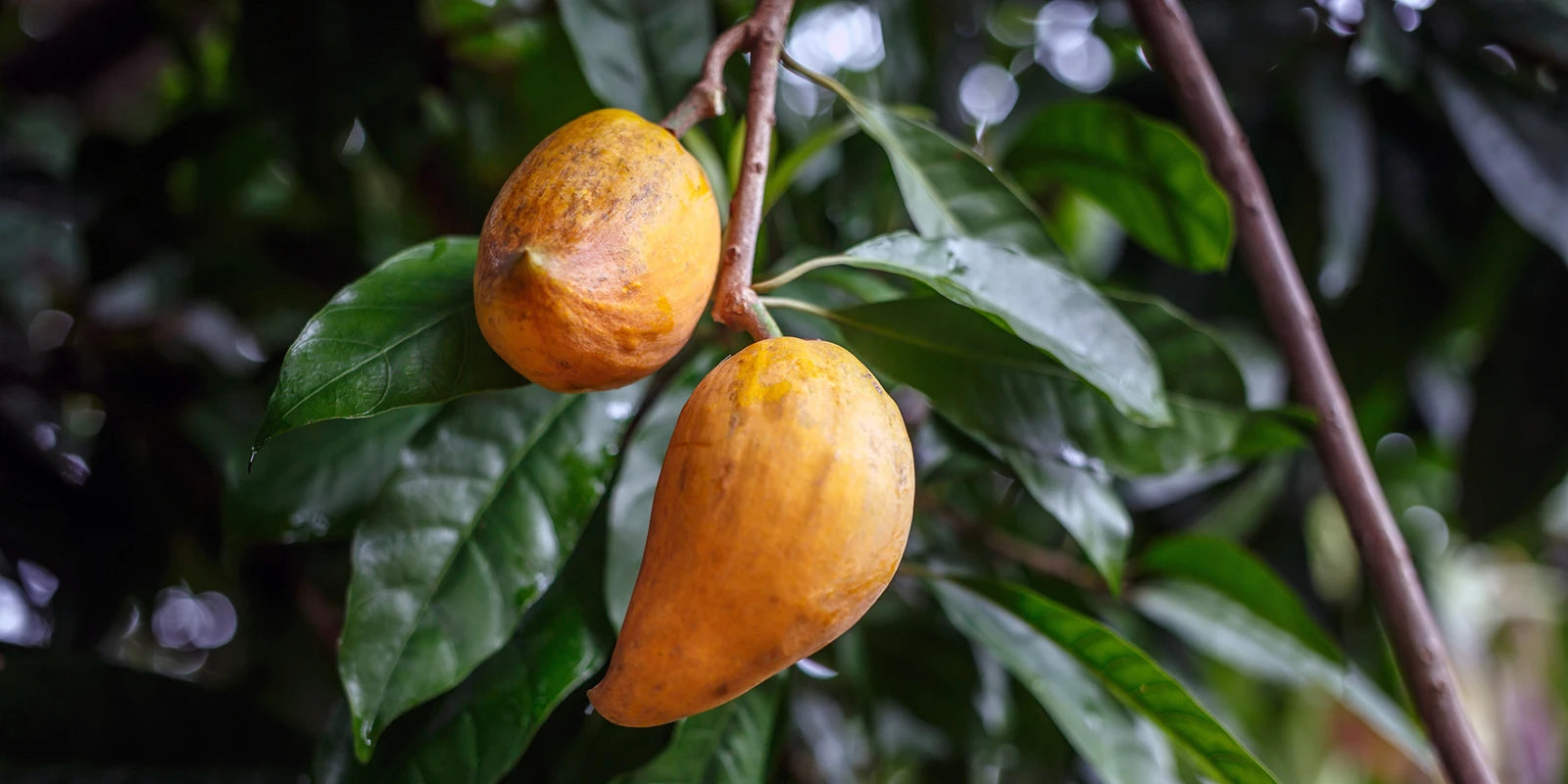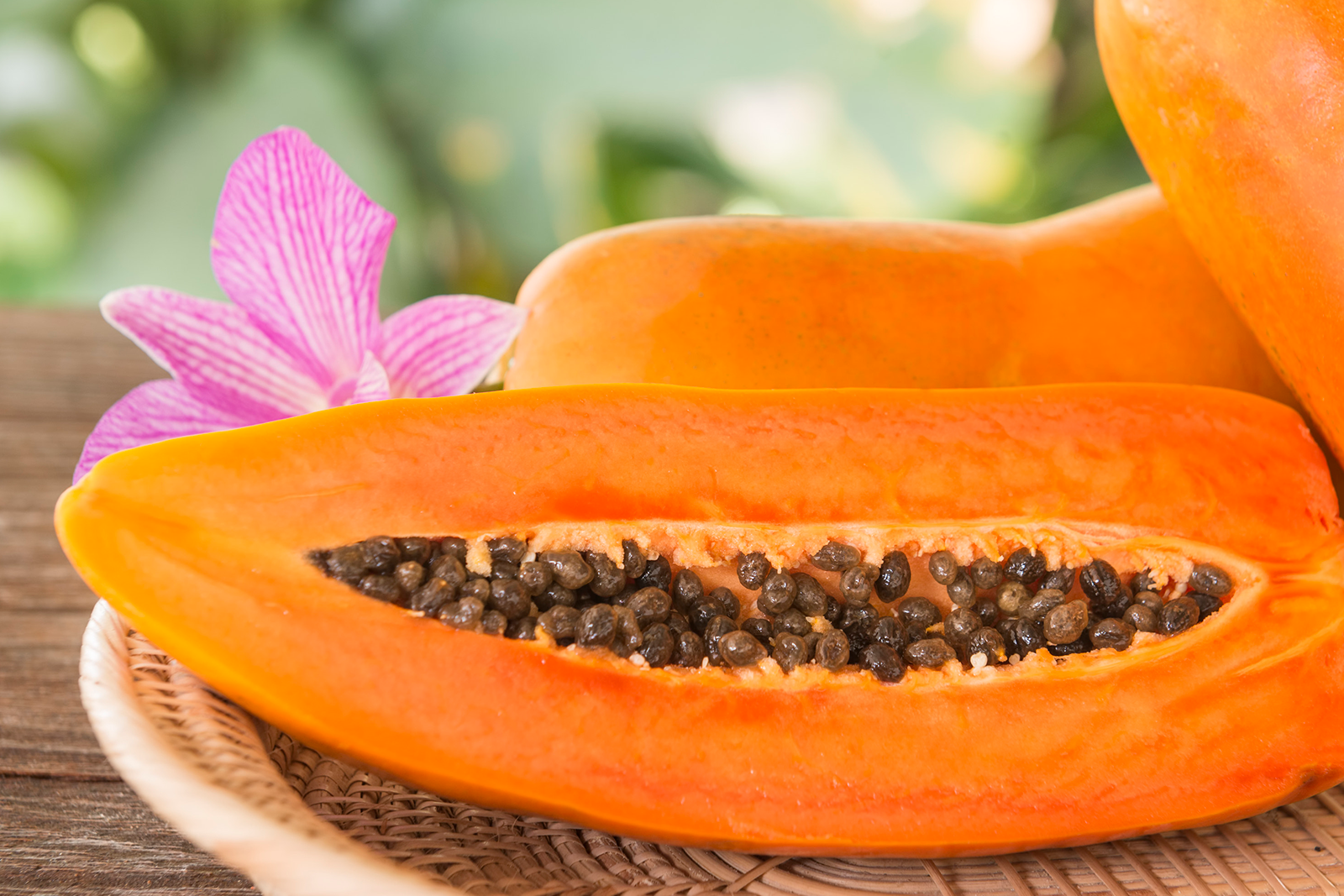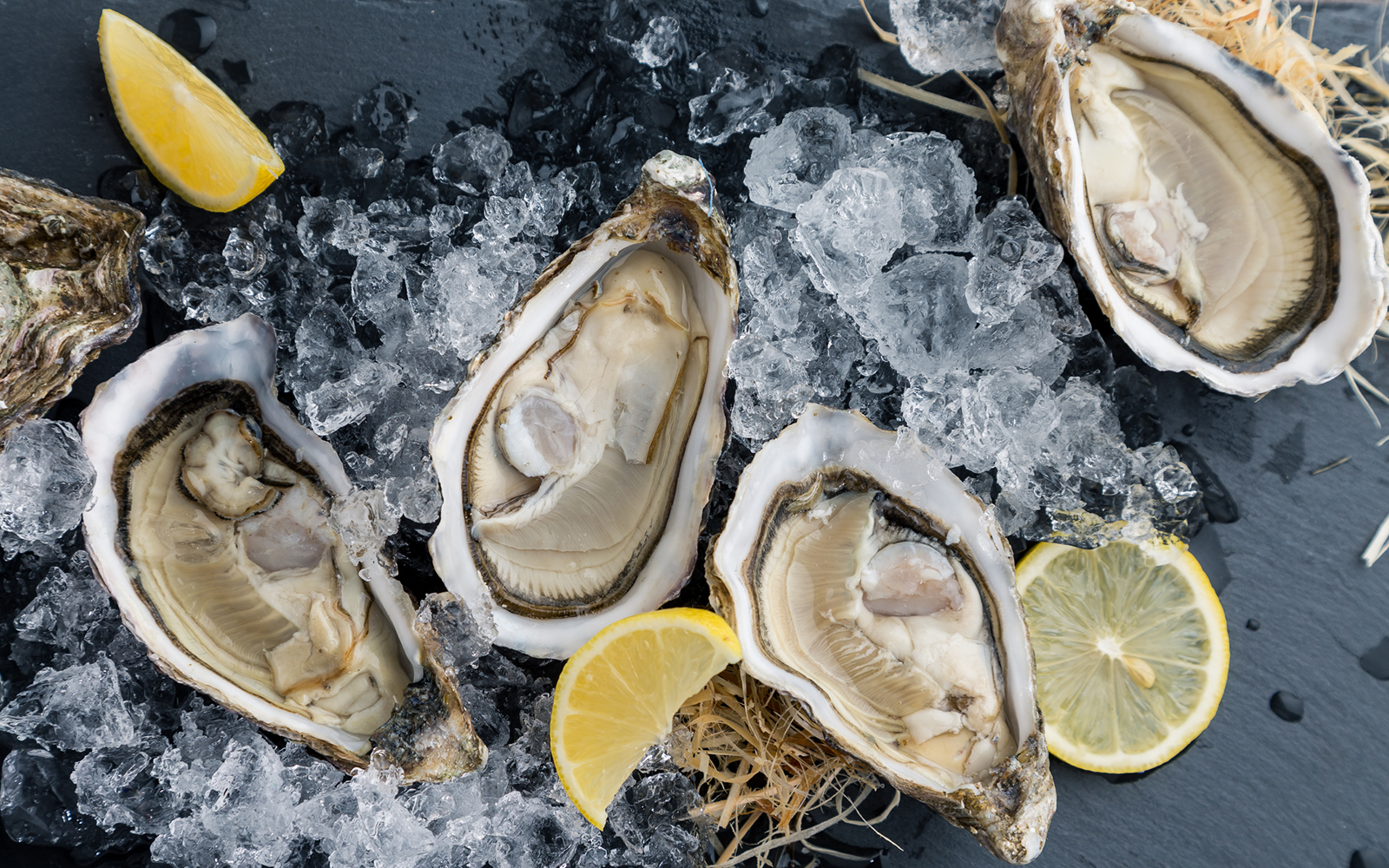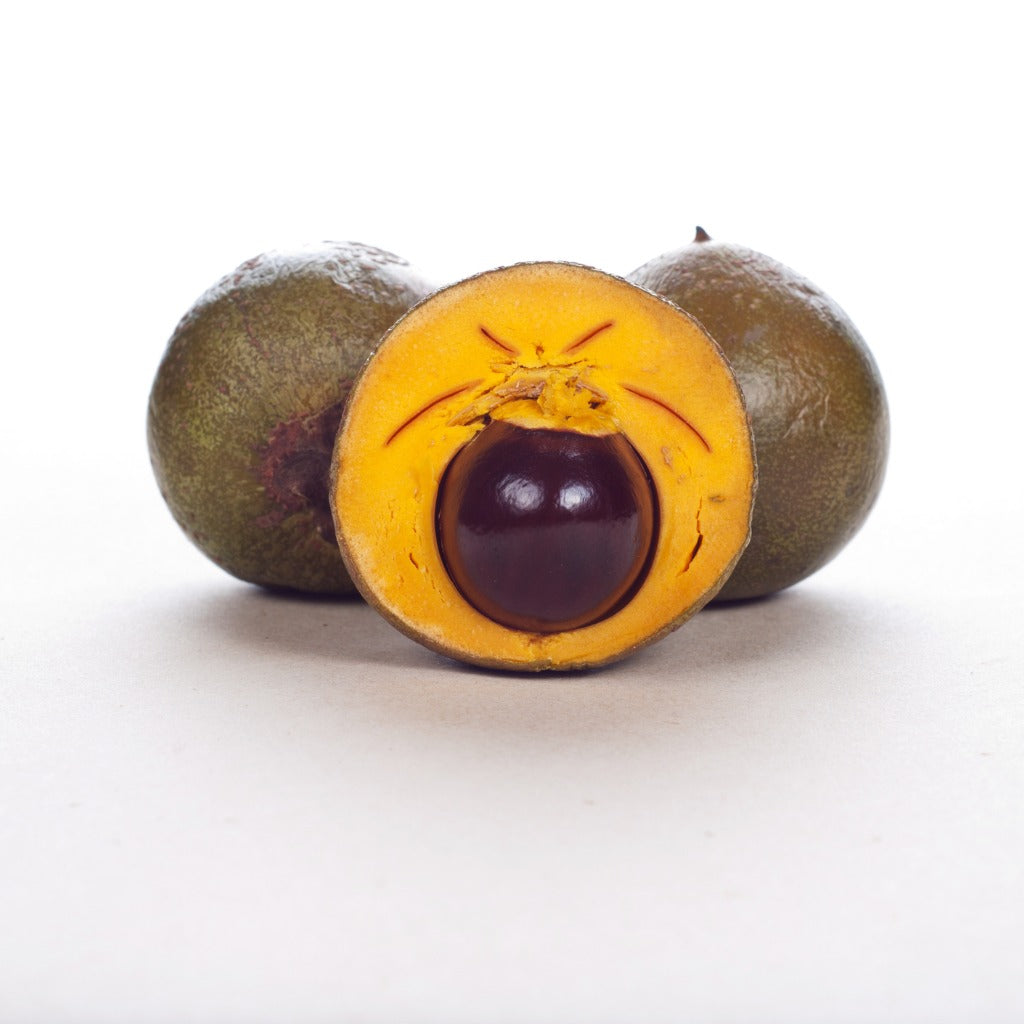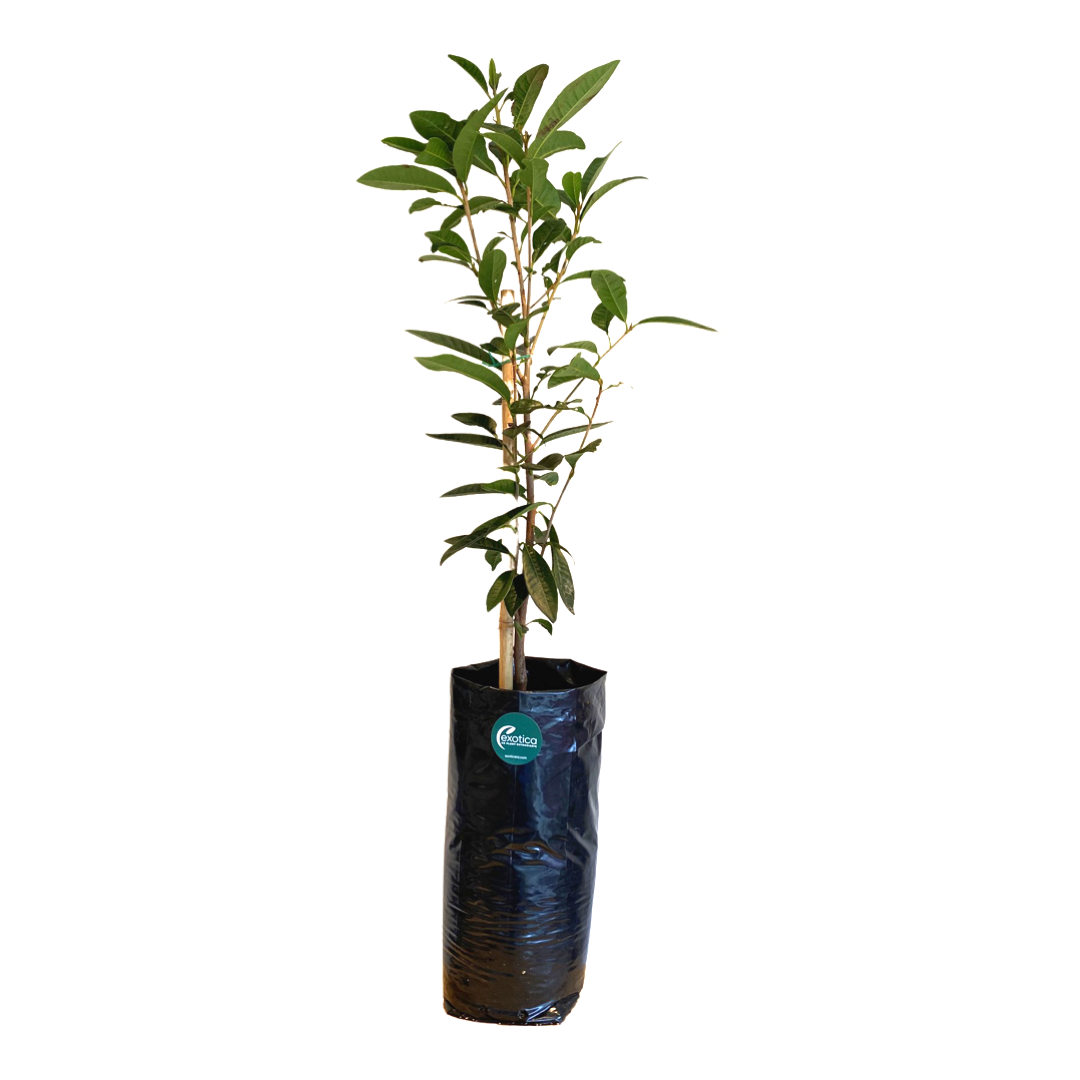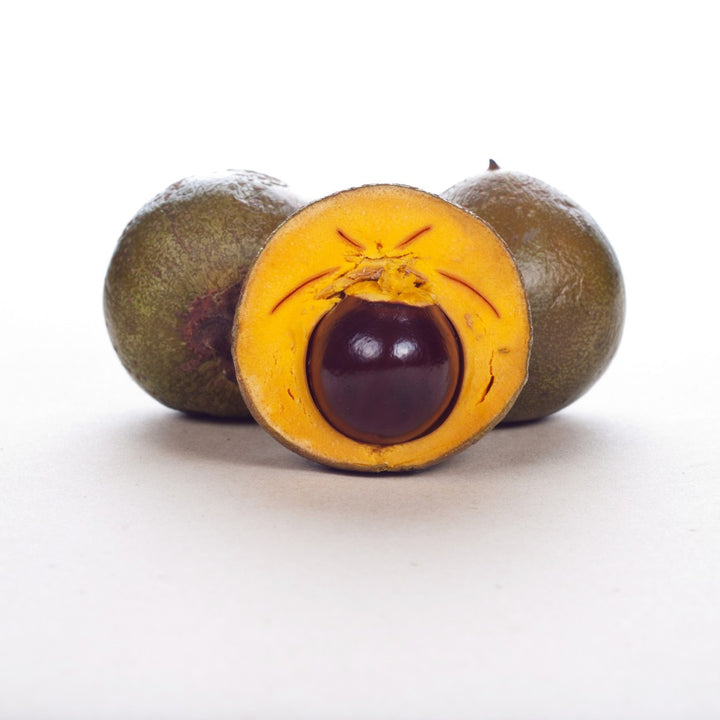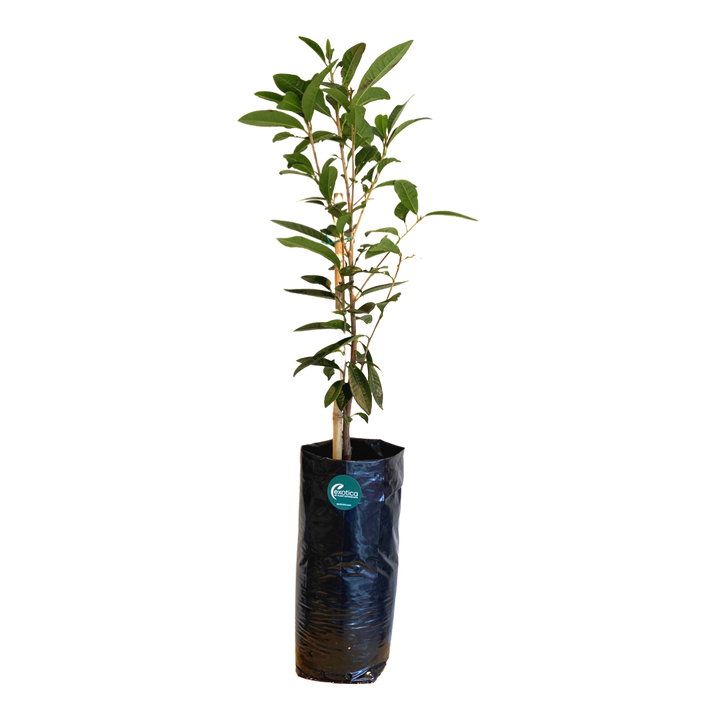Lucuma Obovata
Lucuma Obovata - Butterscotch Fruit (Pouteria lucuma)
* The plants are now bigger than the photo
Lucuma, pronounced loo-koo-ma, is an exotic Peruvian fruit that looks a little like a nashi pear crossed with a mango. It has a delicious creamy citrus flavour with a hint of maple and a dash of sweet potato (NZ kumara). It’s sometimes called the “eggfruit” in English, due to the texture of the fruit’s flesh, which is quite dry like a hard-boiled egg yolk.
Lucuma is known by the local people of Peru as the “Gold of the Incas”, and has been cherished for centuries, both as a staple food source, and a religious offering associated with fertility. Today, the fruit still plays a big part in contemporary Peruvian celebrations, and is the most popular flavour of ice cream in the country
The fresh fruit is very popular in its native areas but the dry mealy texture does not appeal to everyone. It is more commonly eaten in processed forms where it is used to flavour beverages, ice-creams, pastries and other desserts. Pulp can be stored frozen or dried, with the latter often ground to a yellow-orange powder for use in beverages, baking and other products. The flavour has been described as similar to coffee, vanilla and butterscotch with a hint of maple syrup.
Apart from being so tasty, they are also very nutritious. They contain lots of beta-carotene, niacin, iron and B vitamins and are very low in fat and sugar. My favourite lucuma fix is a deliciously rich smoothie, using lucuma pulp whizzed with half a litre of pure orange juice.
Another simple way to use them is in a great non-dairy custard, by blending equal amounts of spotty-ripe bananas and lucuma pulp, a cup of warm nut milk and a little vanilla, then leave it in the fridge to set. You can add liquid honey to make it sweeter but the fruit has its own subtle sweetness anyway.
Simplest of all is a mousse made from lucuma mashed (or blended) with the juice of an orange until it is creamy-smooth like soft butter, before adding a topping of fresh passionfruit. A squeeze of lime juice will add some extra zing.
If you want to recreate the powder so sought-after by South Americans, slice the ripe fruit, dehydrate them, then grind into powder. This can then be stored and used to flavour cakes, ice-cream or a decadent crème brûlée.
In short, lucuma is a surprisingly versatile fruit to grow in the warmer areas of New Zealand, which ripens throughout the winter. Every food forest should have one… or two.
Standard is 2 years old. Matured is 5+ years old
Plant Care
- Soil: Lucuma prefers well-drained, fertile soil rich in organic matter. It does well in soil with a pH ranging from neutral to slightly acidic. Improving the soil with compost or well-rotted manure can enhance its structure and fertility.
- Watering: Lucuma trees require regular and consistent watering to establish a deep root system, especially during their first few years and in dry conditions. Once established, they are somewhat drought-tolerant but will produce better fruit with adequate moisture.
- Temperature: Lucuma is suited to warm climates and does not tolerate frost. It thrives best in temperatures between 15°C and 25°C. Protection from cold is essential in areas where temperatures drop below this range.
- Light: Prefers full sun for optimal growth and fruit production. Lucuma trees can tolerate partial shade but may produce fewer fruits as a result.
- Fertilising: Feed Lucuma trees with a balanced NPK fertilizer during the growing season to support overall growth and fruiting. Additional applications of potassium can enhance fruit quality. Organic fertilizers like compost or manure are also beneficial, providing slow-release nutrients.
- Pruning: Prune Lucuma trees to remove any dead or diseased branches and to shape the tree for better air circulation and sunlight exposure. Pruning can also help manage the tree’s size, making it easier to harvest the fruits.
- Mulching: Apply a layer of organic mulch around the base of the tree to help retain soil moisture, suppress weeds, and provide nutrients as it decomposes. Keep the mulch away from the trunk to prevent rot.
- Pest Control: Lucuma trees are relatively pest-resistant. Monitor for common pests and treat with appropriate organic or chemical controls if necessary. Maintaining tree health is key to minimizing pest issues.
- Flowering and Fruiting: Lucuma produces small, greenish-white flowers that are generally self-pollinating. The fruit takes about nine months to mature after flowering and is known for its dry, sweet, and starchy yellow flesh, which is often used in desserts.
- Potting: While typically grown in the ground, Lucuma can be potted in large containers with adequate drainage. This method is suitable for controlling growth and managing trees in non-tropical climates, as pots can be moved to protect the tree from colder temperatures.
- Feeding Regime: Regular feeding with balanced fertilizers during the active growth period is crucial for maintaining tree health and ensuring good fruit production. Adjust the nutrient levels based on soil tests to avoid nutrient imbalances.
We ship our plants and garden supplies throughout New Zealand. Due to the increased costs of shipping and packaging, we now apply a delivery charge. After offering free shipping for three consecutive years, we find it necessary to adjust this policy to align with current market conditions. However, we have lowered our prices to help offset this change.
Please note, we do not ship plants or garden supplies internationally from New Zealand. We do export plants and tissue culture materials from our overseas nursery, which requires a minimum order. Please contact us at hello@exoticanz.com to discuss your specific requirements.
Shipping (plants) from:
North Island Urban $25
North Island Rural $35
South Island Urban $25
South Island Rural $35
Shipping Garden Supplies:
North Island Urban $20
North Island Rural $25
South Island Urban $35
South Island Rural $45
Delivery
- Our plants are available for shipment from September to April, depending on stock levels. Typical delivery times range from 5 to 7 business days, although they can take up to 10 business days depending on the destination.
- We take extra care in packaging; most of our plants are secured in bespoke inserts and shipped in individual boxes to ensure they arrive undamaged.
- Deliveries are scheduled once a fortnight, typically on Monday. If you place your order over the weekend, we aim to dispatch your plants on the following Monday. This scheduling allows our team to prepare your order thoroughly and ensures the courier has sufficient time to deliver your plants safely, avoiding any unnecessary delays over the weekend.
- All orders are shipped via courier track and trace service (not signature required)
- We cannot deliver to PO Box addresses.
- If you have a rural address, please contact us beforehand to discuss the best delivery options and avoid any potential issues.
Additional Delivery Information
- Most plants are shipped with soil. During the cooler months, we closely monitor weather conditions and may temporarily delay shipments if the weather is particularly severe. Our packing process includes adding insulation when necessary to protect the plants against temperature extremes.
- In summer, we ensure that plants are thoroughly watered before they leave our nursery. Occasionally, we may need to ship plants bare-rooted, particularly when they cannot be comfortably re-potted into smaller packaging for shipping. We will always discuss this with you in advance if your plant needs to be shipped in this manner.
- It's important to note that shipping can be a stressful experience for plants, often due to spending several days in a dark, confined space. While most plants withstand this with little to no stress, some may experience leaf drop. However, they generally recover quickly with some additional care, including proper watering and gradual reintroduction to light after arrival.


